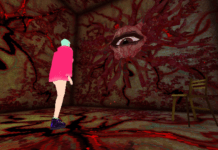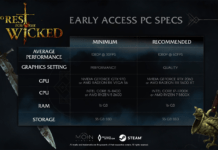Bangor Daily News
Maine news, sports, politics, election results, and obituaries
With the unveiling of its new campus esports facility on Thursday, Husson University in Bangor is adding competitive gaming, or esports, to its landscape of academic and athletic offerings.
In doing so, it is taking a step a number of other colleges across the country have recently taken to incorporate esports into their competitive lineups.
The Husson Esports Center, located in the Darling Learning Center, will offer students and faculty a place to play competitive video games on 15 top-of-the-line gaming PCs, and will house Husson’s new varsity esports team, coached by recent hire Joel Madru.
The team will play its first intercollegiate matchup at 3 p.m. Saturday, when Husson’s “League of Legends” varsity team competes online against the University of Toronto.
Madru said the goal of the varsity esports program isn’t to see students become professional gamers, but rather to prepare students for careers in the tech and gaming industries.
“A lot of these companies are looking for students who understand the gaming world when they’re scouting interns or hiring recent grads,” Madru said. “And participating in esports gives you all kinds of soft skills, like teamwork, problem-solving, creativity [and] communicating.”
But make no mistake: esports is a sport. For more traditional sports fans, the idea of video games being a “sport” is one they may brush off.
Esports players and fans, however, would likely argue that it doesn’t really matter what old-school sports fans think — esports is a $2 billion industry, with more than 600 million global viewers of esports tournaments on platforms like YouTube and Twitch. According to World Atlas, that’s more global viewers than baseball, golf or American football. Esports is no longer an up-and-coming sport; it’s already arrived.
Madru, a Massachusetts native, moved to Bangor last fall to take the newly created position of esports coordinator at Husson, a similar position to the one he previously held at Saint Leo University in Florida. The new varsity and junior varsity teams will compete in games including “League of Legends,” “Overwatch,” “Rocket League,” “Valorant,” and “Super Smash Bros. Ultimate.”
There are gamers all over Maine, but for some people, the barrier to entry may be high, with some gaming PCs costing upwards of $2,000, and with Maine’s slow rural internet speeds creating lag when competing with players in other parts of the country or world where lightning-fast broadband internet is the norm. Even a few seconds of lag can mean the difference between winning and losing.
“With this facility, we can level the playing field for our gamers, regardless of their personal situation,” Madru said. “It’s really exciting to see Husson invest in this, because it’s a whole new world to explore.”
In Maine, there are only three other colleges besides Husson that offer esports as an intercollegiate program, and not as a student-run activity — York County Community College, Northern Maine Community College and Thomas College in Waterville. Some of the largest and top-ranked college esports programs include those at Miami University in Ohio, University of California, Irvine, and the Maryville University in Missouri.
For some Husson students, esports are a way to gain professional skills. For others, it’s just for fun. Fort Kent native Madison Gervais, who is pursuing a graduate degree in pharmacy at Husson, is co-captain of the varsity “Overwatch” team. She said she plays games to de-stress.
“This new esports facility is going to be a great way to de-stress and re-center,” Gervais said. “Studying pharmacy is an intensive endeavor. Sometimes a little ‘Overwatch’ is just what the doctor ordered.”
Emily Burnham is a Maine native and proud Bangorian, covering business, the arts, restaurants and the culture and history of the Bangor region. More by Emily Burnham











